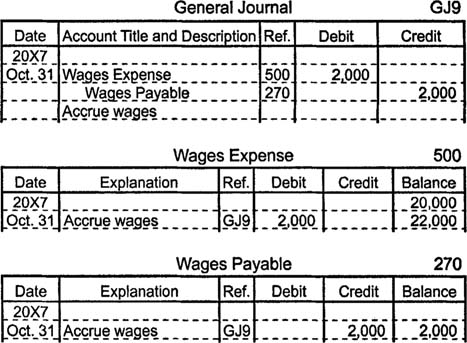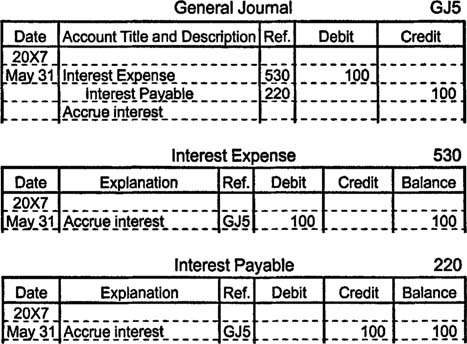An adjusting entry to accrue expenses is necessary when there are unrecorded expenses and liabilities that apply to a given accounting period. These expenses may include wages for work performed in the current accounting period but not paid until the following accounting period and also the accumulation of interest on notes payable and other debts.
Suppose a company owes its employees $2,000 in unpaid wages at the end of an accounting period. The company makes an adjusting entry to accrue the expense by increasing (debiting) wages expense for $2,000 and by increasing (crediting) wages payable for $2,000.

If a long‐term note payable of $10,000 carries an annual interest rate of 12%, then $1,200 in interest expense accrues each year. At the close of each month, therefore, the company makes an adjusting entry to increase (debit) interest expense for $100 and to increase (credit) interest payable for $100.

Accounting records that do not include adjusting entries for accrued expenses understate total liabilities and total expenses and overstate net income.